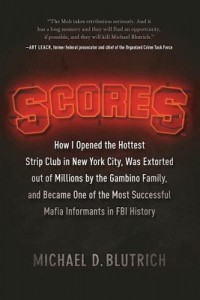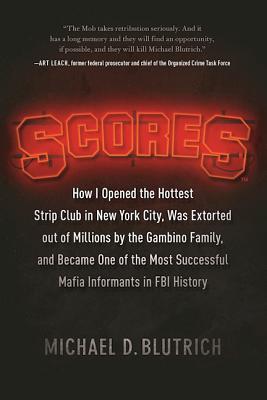Published in: May-June 2017 issue.
 Scores: How I Opened the Hottest Strip Club in New York City, Was Extorted Out of Millions by the Gambino Family, and Became One of the Most Successful Mafia Informants in FBI History
Scores: How I Opened the Hottest Strip Club in New York City, Was Extorted Out of Millions by the Gambino Family, and Became One of the Most Successful Mafia Informants in FBI History
by Michael D. Blutrich
BenBella Books. 328 pages, $26.95
HOW MIGHT IT come to pass that a gay man would own a heterosexual strip club? That is a question that Michael D. Blutrich sets out to answer in this memoir, which mostly takes place over a short decade in the 1990s.
The story begins not long after Blutrich opened a law firm on an associate’s promise that a big-name political figure would become a partner.







